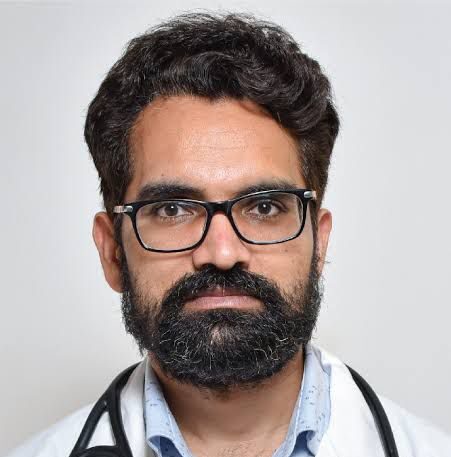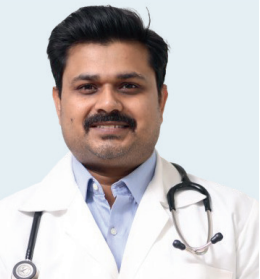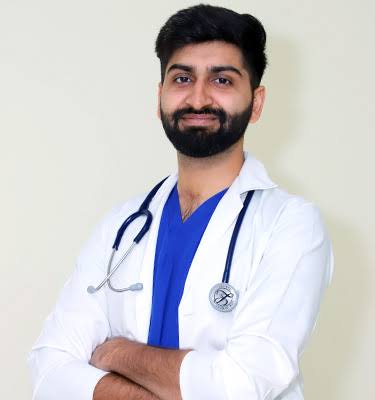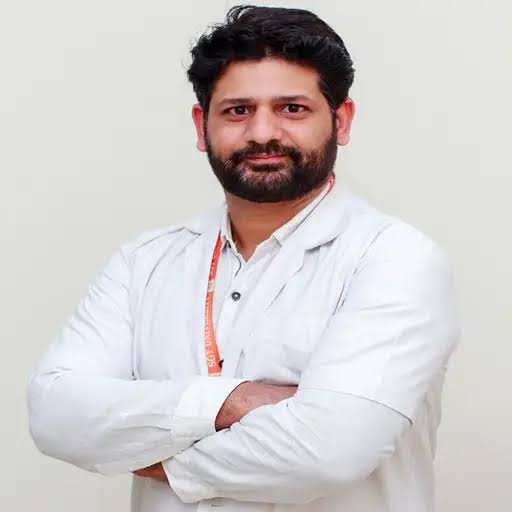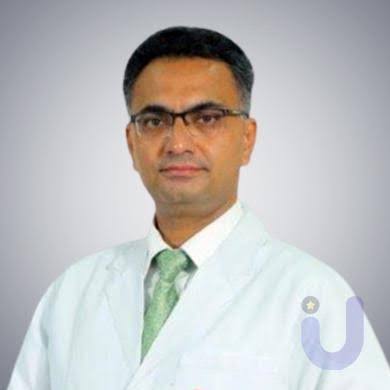
Anaesthesia & Critical Care
Anaesthesia and critical care are integral components of modern healthcare, playing crucial roles in ensuring patient safety, comfort, and well-being during surgical procedures and critical illness management.
Anaesthesia involves the administration of medications to induce a reversible loss of sensation or consciousness, facilitating pain-free medical procedures, surgery, and interventions. Critical care, on the other hand, focuses on the intensive monitoring and treatment of patients with life-threatening conditions or severe injuries, aiming to stabilize their physiological functions and prevent further deterioration.
Anaesthesia:
Anaesthesia is administered by anaesthesiologists or certified registered nurse anaesthetists (CRNAs) and involves three main components: analgesia (pain relief), amnesia (memory loss), and muscle relaxation. The goals of anaesthesia include ensuring patient comfort, maintaining physiological stability, and facilitating surgical procedures or medical interventions. Anaesthetic agents can be administered through various routes, including inhalation (inhaled anaesthetics), injection (intravenous or intramuscular anaesthetics), or topical application (local anaesthetics).
Types of Anaesthesia:
- General Anaesthesia: Induces a reversible loss of consciousness and sensation throughout the entire body, allowing for pain-free surgery and procedures.
- Regional Anaesthesia: Blocks sensation in a specific region of the body, such as spinal anaesthesia, epidural anaesthesia, or peripheral nerve blocks, providing targeted pain relief for surgical sites or childbirth.
- Local Anaesthesia: Numbs a small area of the body, typically used for minor surgical procedures, dental work, or dermatological procedures.
Anaesthesia Monitoring:
- During anaesthesia, patients are closely monitored to ensure their safety and physiological stability. Vital signs such as blood pressure, heart rate, respiratory rate, oxygen saturation, and temperature are continuously monitored using specialized equipment.
- Advanced monitoring techniques, such as invasive arterial blood pressure monitoring, central venous pressure monitoring, and cardiac output monitoring, may be utilized for high-risk patients or complex surgeries.
Anaesthetic Complications and Management:
- Despite advancements in anaesthesia techniques and safety measures, complications can occur, including allergic reactions, respiratory depression, hypotension, bradycardia, and awareness during surgery.
- Anaesthesiologists are trained to recognize and manage these complications promptly, employing interventions such as adjusting anaesthetic depth, administering medications, providing respiratory support, and initiating cardiopulmonary resuscitation (CPR) if necessary.
Critical Care:
Critical care, also known as intensive care, is provided in specialized units known as intensive care units (ICUs) or critical care units (CCUs), staffed by multidisciplinary teams of critical care physicians, nurses, respiratory therapists, pharmacists, and other healthcare professionals. Critical care aims to support and stabilize patients with life-threatening conditions or organ failure, providing advanced medical interventions, monitoring, and supportive care.
Conditions Requiring Critical Care:
- Patients requiring critical care may include those with severe infections, respiratory failure, cardiovascular emergencies, neurological disorders, trauma, burns, or postoperative complications.
- Critical care interventions may include mechanical ventilation, hemodynamic support, continuous renal replacement therapy (CRRT), vasopressor therapy, and neurocritical care measures.
Multidisciplinary Care Team:
- Critical care units utilize a multidisciplinary approach, with healthcare professionals from various specialties collaborating to provide comprehensive care tailored to each patient’s needs.
- Critical care teams work together to assess, monitor, and manage patients’ conditions, utilizing evidence-based guidelines, protocols, and treatment algorithms to optimize outcomes and minimize complications.
Advanced Monitoring and Support:
- Critical care patients are continuously monitored using advanced technologies, including bedside monitors, ventilators, intravenous infusion pumps, and cardiac telemetry systems.
- Hemodynamic monitoring, invasive arterial lines, central venous catheters, and pulmonary artery catheters may be used to assess cardiovascular status, fluid balance, and tissue perfusion, guiding treatment decisions and interventions.
Critical Care Challenges:
- Critical care presents unique challenges, including the management of complex patients, communication barriers, ethical dilemmas, end-of-life care decisions, and resource allocation in resource-limited settings.
- Critical care teams must navigate these challenges while prioritizing patient safety, comfort, and dignity, fostering collaboration, communication, and shared decision-making among team members and patients’ families.
Conclusion
In summary, anaesthesia and critical care are indispensable components of modern healthcare. It provides essential services for patients undergoing surgery, medical procedures, or treatment for critical illness. By employing advanced techniques, technologies, and interdisciplinary collaboration, anaesthesiologists and critical care teams play pivotal roles in ensuring patient safety, optimal outcomes, and quality of care in diverse clinical settings.
MET Hospital provides excellent anaesthesia and critical care. Our highly skilled team is committed to providing exceptional care for trauma-related disorders. Count on us for specialized, modern medical care. Your health is our first priority at MET Hospital.
Departments
EXCELLENTBased on 126 reviews
 Saurabh Pandit2024-10-16My wife was admitted in case of emergency because of datura poisoning. When she was admitted, she was suffering from a high fever, dizziness, and itching all over her body. But thanks to the MET hospital and team, now she is fine and conscious. The staff of the hospital is professional; they treated me so well. Special thanks to Mr. Deepak; he also understands our financial condition and regards us with a special discount. Thanks, Met Hospital and team. Thanks a lot for your help.
Saurabh Pandit2024-10-16My wife was admitted in case of emergency because of datura poisoning. When she was admitted, she was suffering from a high fever, dizziness, and itching all over her body. But thanks to the MET hospital and team, now she is fine and conscious. The staff of the hospital is professional; they treated me so well. Special thanks to Mr. Deepak; he also understands our financial condition and regards us with a special discount. Thanks, Met Hospital and team. Thanks a lot for your help. Chandan Chauhan2024-10-10Best hospital best dr. And diagnosis and treatment all nursing staff behavior is best Best food Mr. Anup nursing staff very best staff All staff very best
Chandan Chauhan2024-10-10Best hospital best dr. And diagnosis and treatment all nursing staff behavior is best Best food Mr. Anup nursing staff very best staff All staff very best AKASH KUMAR2024-10-02I have recently visited at MET hospital because of high fever 🤒 and body pain. Know I am fit and fine because of Very helpful and supportive nursing staff and doctor. You can get your health care at reasonable price here. I would highly recommend MET hospital 🏥
AKASH KUMAR2024-10-02I have recently visited at MET hospital because of high fever 🤒 and body pain. Know I am fit and fine because of Very helpful and supportive nursing staff and doctor. You can get your health care at reasonable price here. I would highly recommend MET hospital 🏥 Harsh Kumar2024-10-02The staff at MET hospital has been extremely professional and cooperative. Every time have visited the hospital have been given good service . One staff Mr Anup stands apart as he is well versed with his job and does his work professionally. His behaviour towards patients is extremely courteous and he always treats them with lots of respect and smile. Mr Anup always tries to bring a smile on the patients face even when things are difficult. He is really a great asset to the MET hospital.
Harsh Kumar2024-10-02The staff at MET hospital has been extremely professional and cooperative. Every time have visited the hospital have been given good service . One staff Mr Anup stands apart as he is well versed with his job and does his work professionally. His behaviour towards patients is extremely courteous and he always treats them with lots of respect and smile. Mr Anup always tries to bring a smile on the patients face even when things are difficult. He is really a great asset to the MET hospital.




